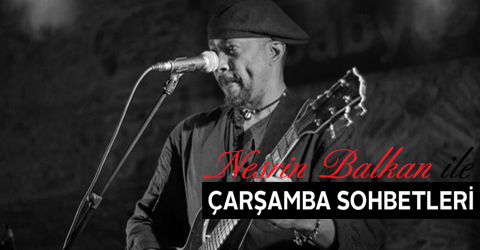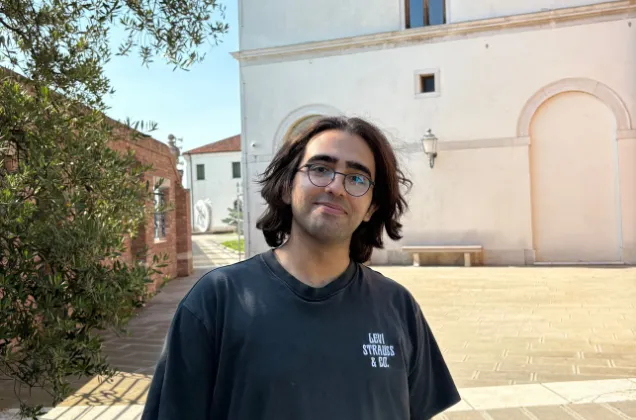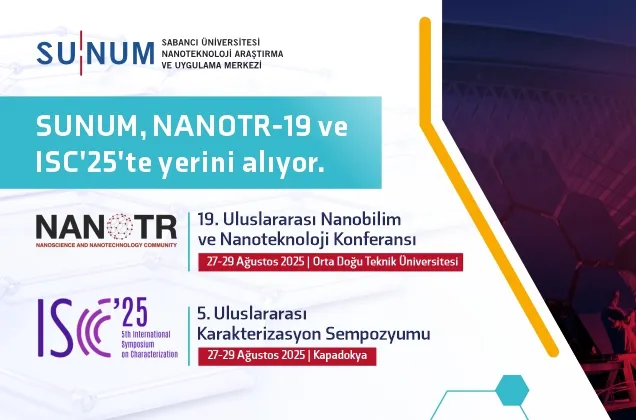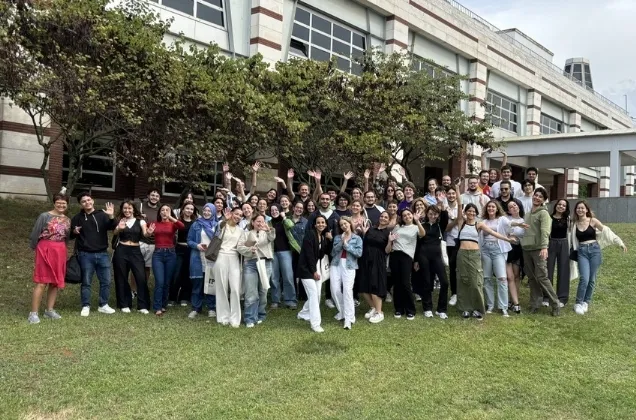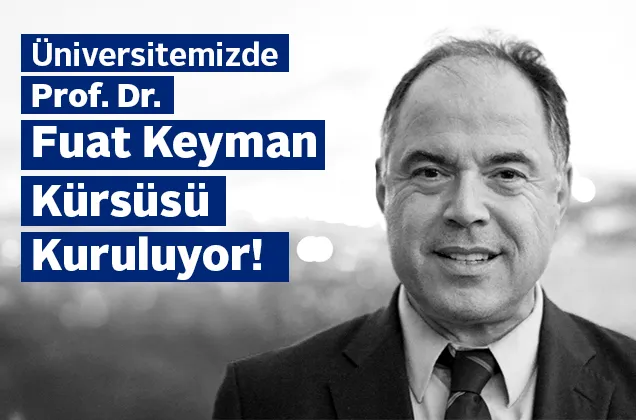28/03/2013
Kelly Todd Brewer: “I didn’t speak the language when I arrived in Turkey but I never felt lonely or an outsider. When I went to Germany, I looked for Turkish people whenever I needed to ask something.”

Kelly Todd Brewer is a professor of “Great Works of Literature” in the Foundations Development Program, and a favorite among students. We used to be on the same bus with Kelly in his early days at the university, and we talked at length given the time we were commuting every day. I was amazed at how fast he learned Turkish and impressed by his natural talent in picking up the language. I was further astonished when he began to make full idiomatic use of the language within six months. We spoke with Kelly on his childhood, his family, how he decided to come to Turkey, the friendships he made here, his students, his music, basically his life, but with a catch: the entire conversation was originally in Turkish.
You came to Turkey in 2003, right? And it was your first time here.
Yes.
So you came to Turkey to be a professor at Sabancı University.
Yes.

Your students love you; they say you encourage them to ask questions and that you are really approachable. From what I have seen, you learned Turkish very quickly; your idiomatic use was surprising and you had almost no accent. I think this your talent. You also seem like a people-person. What can you say about this?
Actually I’m not confident about speaking Turkish. I had to learn the language because I really am a people-person; I like meeting new people and I like to talk to them in their own language. So I started to learn the language after I came here. I never took any courses, I was simply around people, talking to them, practicing.
This is interesting because there are people who don’t speak a word of Turkish although they’ve been here for a long time.
You know how I learned Turkish? I learned it at the grocery store, in the restaurants, in taxis, at the street market, speaking to the shop owners in the neighborhood. I made many friends in Reşitpaşa, where I live. I have a lot of neighbors too and I’m always up for a chat.
Can you talk about your life in America. Where are you from?
I’m from a small town in South Carolina. I grew up outdoors; in the garden, in the street. But I can’t say I grew up in a village because there really are no villages in America. We had a very large piece of land.
Were your family farmers?
No, we just had a large plot of land with no houses other than our own on it.
I’ve never been to America but I’ve seen those huge open spaces in films, especially in the South, where you have to drive to your neighbor’s house because it is so far away. Was that the case for you?
Exactly, so we spent most of our youth on motorcycles. We weren’t rural people but we lived a rural life. We were traveling long distances but we were in a community where everyone knew each other.
"My father was among the first troops dispatched to Vietnam. He died there a few months after I was born."
Do you have sisters or brothers?
I have two older brothers and an older sister; I’m the youngest of four.

What did your parents do?
My father died a few months after I was born, in 1966. He had left for Vietnam when I was one month old, and died in the war. He was among the first troops dispatched to Vietnam. He had been a soldier for 15 years when he was assigned there. He had dropped out of university and joined the Army as an NCO to feed his family.

So your mother brought you up alone.
She wasn’t always alone; my father had a large family and his parents were with us. It was a loving and close family, so we didn’t suffer too much even though we were orphaned. My childhood was okay; I was happy.
Where was the money coming from?
There were many teachers in my father’s family. Where we lived, there was an invisible barrier between black and white people. An African-American couldn’t pick any job he wanted. An African-American teacher could only serve African-American students.
*Bu kelimeyi düzgün kullanabiliyor muyum? Ben tam olarak bilmiyorum, siyah mı demem gerekiyor?
Benim için fark etmez, zenci demek istiyorsan o da olur, siyah da olur. Emin değilsen şöyle diyebilirim: Ben Türkçede zenci kelimesini daha çok seviyorum. Çünkü siyahi olunca böyle bir political correctness (siyaseten doğruculuk) oluyor, onu sevmiyorum. Bence samimi değil.
So there was racial discrimination where you lived.
We didn’t feel as much because that’s how we had known the world.
Indeed, when you are born into that environment you don’t know any other.
Yes, and we weren’t segregated as a community. It’s just like in Istanbul where there is no segregation between rich people and poor people; they are used to each other and they live together. This was the case during my childhood in the American South. We did have social barriers of course.
You said black people couldn’t take up any job they wanted.
Yes. Almost everyone in my family was a teacher. When discrimination ended they continued their jobs and taught black and white students together. We did have issues back then, although not frequently. People said that there was rarely any conflict in the new, mixed schools but not everything went according to plan in the South all the time. You know how it’s like.
The South is where you used to have slavery, right?
Yes.
So perhaps the conflict between the races went way back.
Yes it did, but not like in the movies. For instance, my grandfather’s grandmother was a slave, but she was also the daughter of the slave owner. After emancipation, the white slave owner gave part of his property to this black daughter because he loved her. Then, because she and her children were landowners, they were independent of the racist white community and did not suffer the problems that unlanded black people did.
What university did you go to in America?
I have an undergraduate degree in political science and Spanish from the University of South Carolina and I pursued graduate studies in Spanish literature at the University of Virginia and comparative literature at Binghamton.
Were you ever a teacher in America?
I was; I taught Spanish at the University of Indiana before coming here.
What made you think of coming to Turkey?
I didn’t think of it as such; I had a Turkish girlfriend and I came with her.
So you fell in love with a Turkish woman and decided to come here.
Well, even if I had no such connection I still could have come to Turkey because I love to travel and be in different places. Overall, I think love played 55% of the part in my coming here.

So you came to Turkey, started living in Istanbul and teaching at Sabancı University. I would like to know more about your impressions. How would you compare the people here with the people back in South Carolina?
Turkish cities are similar to the cities in the American South overall.
What makes you say that?
People are close to each other and enjoy being together all the time. Upholding traditions, family ties, closeness among the people are the similarities. It’s like everyone knows one another. Turkey is unlike the American North, where people are detached and independent.
I understand they are more individualistic.
Yes, people are closed in the North, where families tend to be nuclear, and more outgoing in the South. My life is a good example: I didn’t speak the language when I arrived in Turkey but I never felt lonely or an outsider. I was alone of course, but I wasn’t lonely.
So you didn’t feel like a stranger.
I didn’t. Not everyone can say that maybe, but I didn’t feel like a stranger. I hadn’t felt the same way when I was living in Spain.
So you lived in Spain too?
Yes.
You feel Turkish people close to your heart but not Spaniards?
They are different in that they are not that amiable.
Do people in America ask where you are from the way we do here?
Yes, indeed.
Then how would you compare the family structure in Turkey with the family structure in the American South?
They are similar, but they have their differences too. In the South, we do live closer together but we can make our own decisions, people don’t intervene. We can move out on our own when we decide to do so. It is more difficult to make and implement individual decisions in Turkey, where family relations tend to be decisive.
I guess here parents have more say over the lives of their children, who basically need the permission of their parents to do something.
Yes, that is the difference.
Do you meet with your siblings?
Well, we went our separate ways and I’m not going back, so…

You don’t go back to America anymore?
Only rarely. We phone and email each other, but one’s in Colorado, the other’s in New York.
They are all across the United States and you seem to have become Turkish.
You’re right; that’s how I felt when I went to Germany.
Did you say things like this is how we do it in Turkey when you were there?
I could only speak Turkish there, so that was a bit strange.
So you went to Turkey and you found it easier to talk to Turkish people like they were your countrymen.
I didn’t speak German, so I had no choice. I looked for Turkish people whenever I needed something or had to ask for directions.
Were you always interested in music?
Yes, I have been since I was a child. I had a trumpet that I loved playing. When I was nine, I started taking music classes at school so I had a trumpet. I played in the school band during middle and high school. I won a musical scholarship to the South Carolina State University, whose band is known throughout the South, and I played the trumpet in that band. But I stopped playing when I transferred to the University of South Carolina.
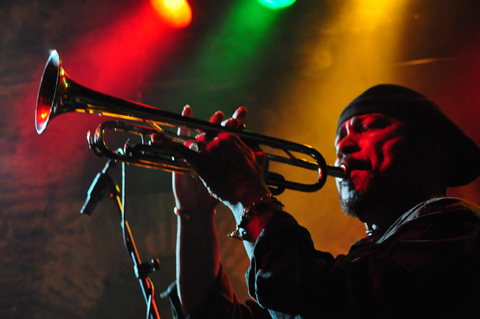
What other instruments do you play?
I play the guitar and I can sing too.
I should mention you also play the saz.
Indeed; I’m like a curious cat.
It’s nice of you to say that for yourself.
But I am; I am perhaps a bit too curious.
You learned to play the saz in Turkey, right?
Yes, but I’m not very good at it.
Well, I think we should decide for ourselves. I think you are a bit too humble in this matter. You can’t be a virtuoso of course, but…
I’m not even a good amateur.
Do you sing Turkish folk songs?
I probably could if I listened closely for a while.
You must have a good ear for music.
Well, a black guy singing Turkish folk songs does sound like a joke.
You said you were a vocalist; do you only sing reggae, or are you interested in blues too?
I like blues too. I joined with economics professor Mehmet Barlo’s band here at Sabancı, we gave a few blues concerts.
When and where?
Last year; we played at the Middle East Technical University.
Really? We never heard about it.
Yes, we did. Mehmet Barlo is a great guitar player and he’s had his band, Kind’a Blue, going on at Sabancı for a long time. The “Blue” stands for both the music genre and Sabancı’s blue color.

So Kind’a Blue is Mehmet Barlo’s band.
Yes, and there are students in the band too, mostly Sabancı students. We played at the Kadıköy Shaft once.
That is great. So you played at METU and Shaft, any others?
Nayah in Beyoğlu too.
Do you still play with Kind’a Blue?
Let’s say Kind’a Blue and I are friends.
So you’re not a full member but you play with the band every now and then.
Yes, but I love them. Mehmet Barlo is simply number one.
*"This section has been intentionally left in Turkish due to meaning loss in translation"
To be continued…
